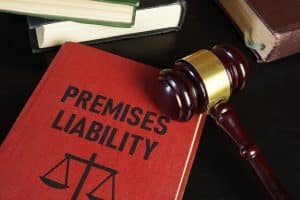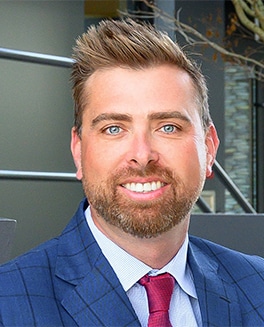Washington’s Duty of Care: What Property Owners Owe to Guests and Trespassers
 As a property owner, how far do you have to go to protect guests and trespassers from injury and death? This is known as premises liability. The state of Washington, like every other state, applies its own premises liability law. These laws differ a bit from state to state. Washington uses the traditional invitee/licensee/trespasser classifications, and assigns different level of care requirements to each.
As a property owner, how far do you have to go to protect guests and trespassers from injury and death? This is known as premises liability. The state of Washington, like every other state, applies its own premises liability law. These laws differ a bit from state to state. Washington uses the traditional invitee/licensee/trespasser classifications, and assigns different level of care requirements to each.
Negligence law
Premises liability law is a subset of general negligence law, where you can file a claim against anyone who injures you as a consequence of their own carelessness. To win a negligence claim, you must prove the following four facts:
- The property owner owed you a duty of care.
- The property owner violated their duty of care by an act or a failure to act. Violation of a duty of care constitutes negligence.
- The negligence caused an accident.
- You suffered damages (medical bills, lost earnings, pain and suffering, etc.) as a consequence of that accident.
You must prove each of these elements on a “more likely than not” basis. You might sue someone who ran a stop sign and hit your motorcycle, for example.
Premises liability
Premises liability is a form of negligence law that applies specifically to people who suffer injury as a result of a dangerous condition on real property—land and buildings. Most premises liability claims involve people injured at business establishments, such as department stores or amusement parks.
The specific duty of care owed by a property owner depends on the identity of the injured party, which in turn depends on their role—invitee, licensee, or trespasser.
Invitees
An invitee is someone the owner welcomes to the property for the owner’s benefit. Think of a customer in a shopping mall, for example. Owners owe invitees the highest duty of care. They must promptly repair or warn of dangerous conditions. That includes latent conditions, which leads to a duty to inspect the property for unseen dangers and either repair or warn of them.
A property owner (such as Walmart) might bear liability if someone slipped on a wet floor that nobody knew about, if Walmart employees negligently failed to detect the spill.
Licensees
A licensee is someone who is there for their own purposes, such as a social guest. An owner must warn of or repair any known dangerous conditions that the licensee is unlikely to discover. They do not have to inspect the property for unknown dangers. Suppose, for example, that a guest falls in your stairwell due to loose stairwell railing that the owner didn’t know about.
Trespassers
A property owner has no duty of care to trespassers, with the exception of the circumstances that appear below.
Deliberate hazards or traps
A property owner cannot place traps on their property to deliberately injure a trespasser. They cannot shoot a trespasser except in self-defense or defense of others.
The attractive nuisance doctrine
Imagine a property owner installs a swimming pool in their backyard. Further imagine that they live near an elementary school. Suppose they are aware that children often cut through their backyard as a shortcut when walking home from school. Despite knowing this, they failed to install a fence to prevent children from entering the pool. A six-year-old drowns in the pool. The property owner might bear liability for the child’s wrongful death.
Here are the elements of an attractive nuisance claim by or on behalf of a trespasser:
Artificial condition: The dangerous condition must be artificial (i.e., man-made, not a natural feature).
Child’s presence foreseeable: The property owner must know or have reason to know that children are likely to trespass where the condition exists.
Unreasonable risk of harm: The condition must pose an unreasonable risk of death or serious injury to children.
Child’s inability to recognize danger: Because of their youth, the child must not discover the condition or realize the risk involved.
Utility vs. burden: The utility of maintaining the condition and the burden of eliminating the danger must be slight compared to the risk to children.
Failure to exercise reasonable care: The owner must have failed to exercise reasonable care to eliminate the danger or protect the children.
Operator liability
In Washington State, a property operator can bear premises liability if they exercise control over the premises, even if they are not the legal owner. Duty arises from control, not title. See Degel v. Majestic Mobile Manor, Inc., 129 Wn.2d 43 (1996). It’s just that most parties with control also hold title. As an example, a retail store that rents space in a shopping mall can bear liability to a customer who breaks their leg in the store.
Defenses
Depending on the specific facts of your case, the defendant might have one or more of the following defenses available to them.
Comparative fault
If the accident was partly the fault of the victim, the victim will bear their own liability in proportion to their percentage of fault. Suppose, for example, that an intoxicated customer slipped on the ice in a grocery store parking lot. If the customer was 40% at fault, they would lose 40% of their damages.
Lack of notice
The property owner might argue that they lacked notice of the dangerous condition, This defense won’t always work. It will probably work, however, if the property owner can show that even a reasonable inspection of the property would not have detected the danger.
Open and obvious condition
If a condition is open and obvious, the property owner’s liability may be reduced—but only if the court finds that the danger was not unreasonably dangerous and the owner could reasonably expect entrants to recognize and avoid it. This might happen if, for example, an invitee attempts to pet a dog on a chain and the dog bites them.
Supervening cause
Imagine a wet floor in a restaurant. An argument breaks out between two customers, and one customer shoves the other customer while they are standing on the wet portion of the floor. The second customer slips, falls, and breaks their hip. The first customer’s assault was likely to constitute a supervening cause that relieved the restaurant from liability. If this happened in a bar, the victim might sue the restaurant for negligent security.
Insurance
Business owners almost always carry plenty of insurance to cover them in case of a premises liability claim. Private homeowners typically rely on homeowner’s insurance. Renters may purchase renter’s insurance.
Schedule a free consultation
If you suffered an injury on someone else’s property, particularly a consumer business, you need to act now. The longer you wait to pursue your claim, the weaker it is likely to become.
Contact Washington state personal injury law firm Philbrook Law for a free initial consultation.

Founding Attorney Matthew Philbrook attended Clark College, Washington State University, and Gonzaga University School of Law. He is a member of the Washington State and Oregon State Bar Associations and started Philbrook Law in 2005. He specializes in Personal Injury, DUI and Criminal Defense cases. Learn more about Mr. Philbrook.

